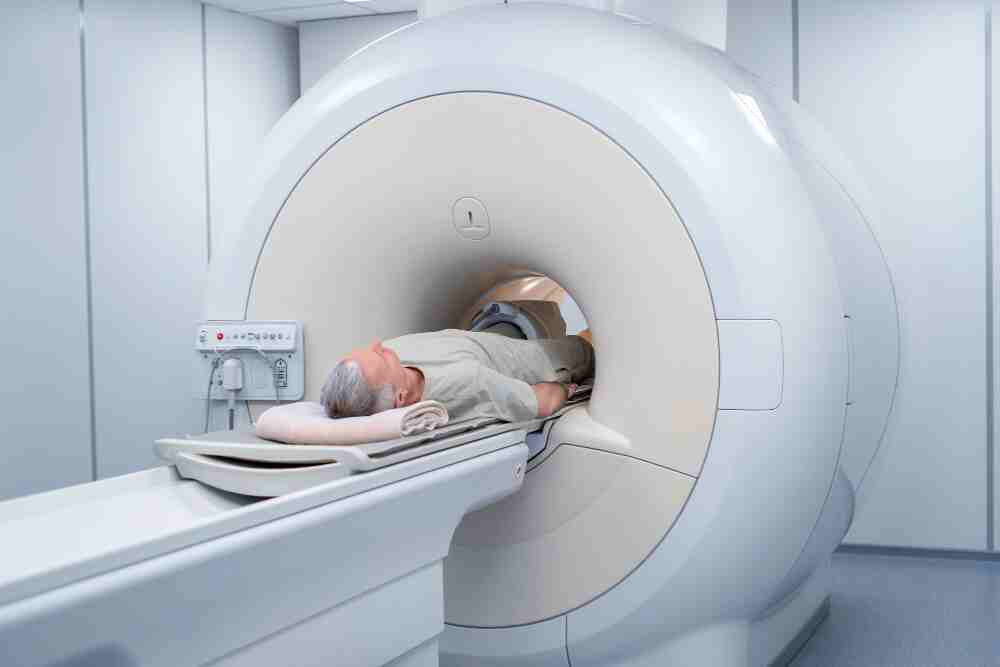Book on Whatsapp
9892101616
What Do You Need To Know About CA 125 Ovarian Cancer?
Cancer
Mon Jan 08 2024
CA 125 is a protein marker that is primarily used to monitor ovarian cancer. Here is everything you need to know about CA 125 and its relevance in ovarian cancer:
1. What is CA 125?
CA 125 is a blood serum test also known as cancer antigen 125, is a protein produced by cell in the female reproductive system used for tumor detection, especially in ovaries , endometrial, lung cancer, and breast cancers. Elevated levels can indicate various conditions, not just cancer. It's commonly used alongside other tests to check and monitor cancer patients, particularly in ovarian cancer treatment.
2. Why is CA 125 important?
CA 125 is primarily used as a marker for ovarian cancer. Elevated levels of CA 125 in the blood can indicate the presence of ovarian cancer, although it is not specific to this condition. CA 125 levels can also increase in other non-cancerous conditions, such as endometriosis, uterine fibroids, and pelvic inflammatory disease.
3. Monitoring Ovarian Cancer:
CA 125 is commonly used to monitor ovarian cancer during and after treatment. It helps in determining the effectiveness of ovarian cancer treatment, detecting cancer recurrence, and evaluating response to therapy. Serial measurements of CA 125 levels over time provide valuable information.
4. CA 125 Early Detection:
While CA 125 Serum Test in mumbai, Pune, Indore is a useful tool for monitoring ovarian cancer, it is not recommended as a screening test for the general population. This is because CA 125 levels can be elevated in other non-cancerous conditions, leading to false positives and unnecessary anxiety. Other imaging techniques and diagnostic tests are usually employed for initial screening and diagnosis. Get diagnosed to check if your results fall under normal CA 125 levels ca 125 normal range
5. Factors affecting CA 125 levels:
CA 125 levels can vary between individuals, and there are certain factors that can lead to fluctuations in its values. These factors include menstrual cycle, pregnancy, age, and other medical conditions. It is important to consider these factors while interpreting CA 125 results.
6. Limitations of CA 125 and its considerations:
It's important to note that CA 125 is not specific to ovarian cancer. Elevated levels can be seen in other conditions, and some cases of ovarian cancer may not exhibit elevated CA 125 levels. Therefore, additional diagnostic tests, such as imaging studies and biopsies, are necessary for an accurate diagnosis.
7. Consultation with a healthcare professional:
If you have concerns about ovarian cancer or CA 125, it is essential to consult with a qualified healthcare professional. They can evaluate your specific situation, assess your risk factors, order appropriate tests, and provide appropriate guidance based on your individual circumstances. Consider getting the following tests to help identify early signs of Ovarian Cancer: Imaging Test, PCOD Test, Ultrasound checkup and Biopsy Test For Ovarian Cancer.
Remember, this information is for educational purposes only and should not replace professional medical advice.
Manipal TRUtest offers a wide range of diagnostic services with assured quality, accuracy, and trust backed by 70 years of Manipal legacy. You can easily schedule a blood test through our WhatsApp Chatbot, Mobile App, or Website. We also provide the convenience of a Home Sample Collection, where a highly qualified phlebotomist will visit you in the comfort of your home. CA-125 blood test
Also Read: Understanding Menopause Management After a Screening
OUR PRESENCE
Blood Test Centre in India
Blood Test Center in Hyderabad / Blood Test Center in Kolkata / Blood Test Center in Vizag / Blood Test Center in Mumbai / Blood Test Center in Ghatkopar / Blood Test Center in Kolhapur / Blood Test Center in Pune / Blood Test Center in Solapur / Blood Test Center in Rohtak / Blood Test Center in Indore / Blood Test Center in Gurugram / Blood Test Center in Ghaziabad/ Blood Test Center in Bangalore / Blood Test Center in Nashik / Blood Test Center in Nagpur
CT-Scan Centres in India
CT Scan Centre in Bhiwani/ CT Scan Centre in Gurugram/ CT Scan Centre in Jind / CT Scan Centre in Hisar/ CT Scan Centre in Kaithal/ CT Scan Centre in Kurukshetra / CT Scan Centre in Mewat/ CT Scan Centre in Sonipat/ CT Scan Centre in Panchkula/ CT Scan Centre in Panipat / CT Scan Centre in Rohtak/ CT Scan Centre in Yamunanagar/ CT Scan Centre in Daltonganj / CT Scan Centre in Deoghar/ CT Scan Centre in Dhanbad / CT Scan Centre in Dumka/ CT Scan Centre in Hazaribagh/ CT Scan Centre in Koderma/ CT Scan Centre in Ranchi/ CT Scan Centre in Simdega/ CT Scan Centre in Bangalore/ CT Scan Centre in Mangaluru / CT Scan Centre in Manipal / CT Scan Centre in Ghatkopar
PET-CT Scan Centres in India
PET- CT Scan Centre in Vijayawada / PET-CT Scan Centre in Manipal / PET-CT Scan Centre in Jaipur / PET-CT Scan Centre in Kanchipuram / PET-CT Scan Centre in Goa
Ultrasound Centres in India
Ultrasound Scan in Deoghar / Ultrasound Scan in Dumka / Ultrasound Scan in Bokaro Steel City / Ultrasound Scan in Chaibasa / Ultrasound Scan in Giridih / Ultrasound Scan in Godda / Ultrasound Scan in Gumla / Ultrasound Scan in Khunti /Ultrasound Scan in Jamtara / Ultrasound Scan in Pakur / Ultrasound Scan in Simdega / Ultrasound Scan in Manipal / Ultrasound Scan in Ghatkopar East / Ultrasound Scan in Garhwa / Ultrasound Scan in Jamshedpur
MRI Scan Centres in India
MRI Scan in Bhiwani / MRI Scan in Gurugram / MRI Scan in Hisar / MRI Scan in Mewat / MRI Scan in Panchkula / MRI Scan in Rohtak / MRI Scan in Sonipat / MRI Scan in Ranchi / MRI Scan in Bangalore / MRI Scan in Bhubaneswar / MRI Scan in Cuttack
X-Ray Centres in India
X-Ray Centres in Chaibasa / X-Ray Centres in Chatra / X-Ray Centres in Deoghar / X-Ray Centres in Dumka / X-Ray Centres in Garhwa / X-Ray Centres in Giridih / X-Ray Centres in Godda / X-Ray Centres in Gumla / X-Ray Centres in Jamshedpur / X-Ray Centres in Jamtara / X-Ray Centres in Khunti / X-Ray Centres in Latehar / X-Ray Centres in Pakur / X-Ray Centres in Ramgarh / X-Ray Centres in Sahibganj / X-Ray Centres in Simdega / X-Ray Centres in Ghatkopar
ECG Centres in India
ECG Test in Bokaro Steel City / ECG Test in BChatra / ECG Test in Deoghar / ECG Test in Dumka / ECG Test in Garhwa / ECG Test in Giridih / ECG Test in Gumla / ECG Test in Jamshedpur / ECG Test in Jamtara / ECG Test in Khunti / ECG Test in Ramgarh / ECG Test in Simdega / ECG Test in Ghatkopar
Related Tests
Related Packages
Related Blogs

Cancer
Empowering Women with Knowledge About Ovarian Cancer
Ovarian cancer is one of the major severe health concerns for women today. A silent interloper often called the "silent killer" because it also creeps in quietly, with symptoms so vague that they are often mistaken for common digestive or menstrual issues.
Bloating, pelvic discomfort, or feeling full too quickly may seem harmless, but when ignored, can lead to delayed diagnosis. However, “forewarned is forearmed.” With increased regular screenings and awareness, women can also rise against this hidden enemy. Knowledge is the power, and when combined with timely medical care, it can turn the tide.
Through the reliable health checkups, like those offered by Manipal TRUtest, women can also catch early signs, seek instant help, and beat the odds. Encouraging open conversations, supporting one another, and removing the fear surrounding cancer can truly save lives. It is time to break the silence, and empower every woman to prioritize her health because prevention is always better than a cure.
Understanding Ovarian Cancer
Ovarian cancer begins in the ovaries, the organs in charge of producing eggs in women. It often goes unnoticed until it spreads to other parts of the body. Common signs include:
- Frequent urination
- Pelvic pain
- Unexplained weight loss or fatigue
- Bloating or swelling in the abdomen
- Feeling full quickly while eating
If you experience these symptoms often, consult your doctor.
Risk Factors
Some women are more at risk than others. The main risk factors are:
- Family history of ovarian or breast cancer
- Endometriosis
- Genetic mutations (BRCA1 or BRCA2)
Knowing your risk helps you stay alert.
Importance of Regular Screening
The regular health checkups, especially after the age of 40, is important. At Manipal TRUtest, you can get access to affordable women's health checkups. These include ultrasound, CA-125 blood test, and consultation with specialists. Early detection leads to better treatment results.
Healthy Lifestyle for Prevention
The healthy lifestyle for prevention is
- Avoiding tobacco
- Discussing preventive options with your doctor if you have a family history
- Eating a healthy diet rich in fruits and vegetables
- Exercising regularly
Emotional Support Matters
The emotional support matters as a cancer diagnosis can be emotionally overwhelming. Women need support from family, friends, and professionals. Talking openly and joining support groups can help reduce anxiety and fear.
Take Action Today
Don't wait for symptoms to get worse. Take charge of your health. Book a women's wellness package at Manipal TRUtest and consult a healthcare expert. Remember, awareness, prevention, and early diagnosis are your best defense against ovarian cancer.

Cancer
The Role of Whole-Body PET Scans in Cancer Diagnosis
Early recognition of cancer is often the key to successful treatment . One of the most powerful tools in modern medicine for early cancer detection is the whole-body PET scan. This advanced imaging technique enables doctors to view cellular activity throughout the body, often revealing disease before physical symptoms appear—offering a clearer picture than many traditional scans.
What is a Whole-Body PET Scan?
A PET scan (Positron Emission Tomography) is a specialized diagnostic testthat helps doctors understand how tissues and organs are functioning. In a whole-body PET scan, the entire body is scanned in a single session, making it easier to detect cancer that may have spread.
During the test:
- A small, safe dose of radioactive tracer is injected into a vein.
- This tracer travels through the bloodstream and is absorbed by cells with high energy usage—like cancer cells.
- The PET scanner captures detailed images, highlighting areas where the tracer accumulates.
How Whole-Body PET Scans Help in Cancer Diagnosis
Cancer cells behave differently than normal cells—they divide rapidly and consume more energy. As a result, they take up more of the radioactive tracer, which causes them to "glow" on the scan. This makes it easier for physicians to:
• Detect cancer early—even before symptoms begin• Determine whether cancer has spread (metastasized)
• Evaluate how well current treatment is working
• Guide biopsy procedures to the most affected area
• Plan surgery or radiation therapy with greater accuracy
A PET scan provides a comprehensive image, assist doctors in more accurate diagnoses and improved treatment plans.
Who Should Consider a Whole-Body PET Scan?
Your doctor may recommend a PET scan if:
- You are undergoing treatment and doctors need to check the response.
- There is a suspicion that cancer has returned after treatment.
- You are showing signs that could indicate cancer.
- There is a need to stage the cancer and find out how far it has spread.
People with a high risk of cancer, such as those with a family history of the disease, may also be advised to undergo a PET scan for early detection.
Is a Whole-Body PET-CT Scan Safe?
Safety is a common concern. PET scans involve a very small amount of radiation, and the benefits of early detection generally far outweigh the risks. However, it's important to inform your healthcare provider if you are pregnant or breastfeeding, as special precautions may be needed.
How to Prepare for Your PET-CT Scan? To get the most accurate results:
- You may need to fast for several hours before the scan (water is usually allowed and encouraged)
- Wear loose, comfortable clothing
- Remove any metal objects like jewelry
- Follow any specific instructions provided by your healthcare team
Whole-body PET-CT scans are a vital tool in the early detection and treatment of cancer. They provide information that cannot be detected with standard scans, allowing physicians to detect disease earlier and treat it more successfully. If your physician recommends it, having a PET scan can be an crucial step toward safeguarding your health and well-being.

Cancer
Understanding Tumor Markers and Their Role in Cancer Diagnosis
Cancer is a disease that the world mainly fears, but lukewarm advances in cancer detection and treatment have been made in the medical field. Tumor markers are an integral component in the diagnosis of cancer. These are generally produced by cancer cells, and sometimes even by the patient as a lone product in their certain oncogenesis. They can be found in varying bodily fluids blood, urine, or tissue, and their examination helps one know if something malicious is present in his body.
What Are Tumor Markers
These are proteins, hormones, or other molecules secreted by a tumor or by the body in response to the tumor. On tumor markers, a laboratory test that can detect the presence of tumors and any other recurrences has been developed. They are not specific to cancer and may be elevated due to certain benign conditions as well.
How Are Tumor Markers Used
They also assist doctors in:
1. Screening and Early Detection
Some tumor markers are used for screening and early detection in cancer, although they are not by themselves reliable for making the diagnosis of cancer. Generally, tumor markers are combined with other diagnostic tests.
2. Diagnosis
The tumor markers may provide the confirmation of the diagnosis itself, while the other tests such as imaging and biopsies scans may be necessary.
3. Monitoring of Treatment
During a course of cancer treatment, the tumor marker can tell if treatment has been effective or not, depending on tumor marker levels.
4. Check for Recurrence
After treatment, doctors may watch tumor markers regularly to determine the return of cancer.
Common Tumor Markers and Their Associated Cancers
Tumor markers are proteins molded by cancer cells or by the body in response to cancer. Tumor markers help become aware of, diagnose, and monitor most cancers. PSA (Prostate Specific Antigen) assist in the recognition of prostate cancer. CA-125 is engaged to monitor ovarian cancer. CEA (Carcinoembryonic Antigen) is related with colon and rectal cancer and is present in diagnosis as well as for monitoring treatment. AFP (Alpha-fetoprotein) is associated to liver cancer and some testicular and ovarian malignancies. HER 2 (human epidermal growth factor receptor 2) is important in the case of breast cancer, in formation decisions regarding treatment. CA 19-9 is a useful indication for pancreatic cancer, enabling exposure and monitoring at an early stage. The tumor markers are highly useful, they are characteristically utilized in amalgamation with other tests to make more precise diagnosis.
Limitations of Tumor Markers
Tumor markers are quite useful, they are definitely not ideal. For instance, they may be elevated without the existence of cancer, in cases like infections or other medical conditions. Inversely, an individual may have cancer and unable to show elevated levels altogether. Because of this, the doctors do not rely on tumor markers alone to detect a particular disease but instead incorporate other means, such as imaging studies, biopsies, and laboratory tests.
How Do Doctors Perform Tumor Marker Tests
The tumor markers can be useful but are not completely reliable at times. Elevation of the tumor markers may happen sometimes without a cause of cancer, like in some infections or other medical situations. Likewise, an individual may have cancer and not present elevated tumor marker levels every single time. Because of this reason, the doctor comparatively never uses tumor markers in isolation to determine treatment plans, rather uses it in conjunction with imaging scans, biopsies, and additional independent laboratory tests.
The Future of Tumor Markers
Research on tumor markers is continually being improved. Better markers and therapies of a personalized nature, avowedly mammothly talented ones, are being developed to hopefully improve the early detection and, of course, outcomes.
Conclusion
Tumor markers are an important part of diagnosing and managing cancer. They assist doctors with diagnosis, support in monitoring, and managing effectively. This process, however, is more effective when supported with other medical evaluations. Wherever a person may know they are undergoing screening for cancer, consulting a doctor is always wise for proper assessment of a tumor marker result. Early detection, innovation, and advances continue to nurture hope in every whim and effort to conquer cancer.
